
Jeonju: A Tapestry of Tradition and Taste
Jeonju, a city nestled in the heart of South Korea, is a remarkable blend of the old and the new. Known for its rich cultural heritage, Jeonju is often considered the birthplace of Korean culture and cuisine. Every corner of this city tells a story, from its beautifully preserved hanok village to its bustling food markets. The Jeonju Hanok Village is a must-see, featuring over 800 traditional Korean houses that offer a glimpse into the past. Walking through the narrow streets, you can find artisans crafting traditional goods, and experience tea ceremonies that have been preserved for centuries. The village is a living museum, where tradition comes to life. Food lovers will find Jeonju to be a paradise. The city is famous for being the home of bibimbap, a colorful and nutritious dish that has become a symbol of Korean cuisine. Street food is abundant, with vendors offering everything from hotteok (sweet pancakes) to makgeolli (traditional rice wine). Be sure to visit Nambu Market for an authentic taste of local flavors. Cultural enthusiasts can indulge in the city's numerous festivals. The Jeonju International Film Festival and the Jeonju Hanji Culture Festival are just a few examples of the vibrant events that showcase the city's artistic spirit. These festivals attract visitors from all over the world and provide a unique opportunity to immerse yourself in Korean culture. For those who love nature, Jeonju offers beautiful parks and scenic trails. Deokjin Park, with its serene lake and lotus flowers, is perfect for a relaxing afternoon. The surrounding mountains provide excellent hiking opportunities, offering breathtaking views of the city and beyond.
Local tips in Jeonju
- Visit the Jeonju Hanok Village early in the morning to avoid crowds and enjoy a peaceful stroll.
- Try bibimbap at a local restaurant for an authentic taste of Jeonju’s culinary heritage.
- Check the festival calendar as Jeonju hosts several cultural events throughout the year.
- Use public transportation or rent a bike to explore the city efficiently and sustainably.
- Learn a few basic Korean phrases to enhance your interaction with locals and enrich your experience.
Neighbourhoods in Jeonju
Jeonju: A Tapestry of Tradition and Taste
Jeonju, a city nestled in the heart of South Korea, is a remarkable blend of the old and the new. Known for its rich cultural heritage, Jeonju is often considered the birthplace of Korean culture and cuisine. Every corner of this city tells a story, from its beautifully preserved hanok village to its bustling food markets. The Jeonju Hanok Village is a must-see, featuring over 800 traditional Korean houses that offer a glimpse into the past. Walking through the narrow streets, you can find artisans crafting traditional goods, and experience tea ceremonies that have been preserved for centuries. The village is a living museum, where tradition comes to life. Food lovers will find Jeonju to be a paradise. The city is famous for being the home of bibimbap, a colorful and nutritious dish that has become a symbol of Korean cuisine. Street food is abundant, with vendors offering everything from hotteok (sweet pancakes) to makgeolli (traditional rice wine). Be sure to visit Nambu Market for an authentic taste of local flavors. Cultural enthusiasts can indulge in the city's numerous festivals. The Jeonju International Film Festival and the Jeonju Hanji Culture Festival are just a few examples of the vibrant events that showcase the city's artistic spirit. These festivals attract visitors from all over the world and provide a unique opportunity to immerse yourself in Korean culture. For those who love nature, Jeonju offers beautiful parks and scenic trails. Deokjin Park, with its serene lake and lotus flowers, is perfect for a relaxing afternoon. The surrounding mountains provide excellent hiking opportunities, offering breathtaking views of the city and beyond.
When is the best time to go to Jeonju?
Iconic landmarks you can’t miss
Jeonju Hanok Village
Experience the rich culture and stunning architecture of Jeonju Hanok Village, a must-visit destination in South Korea for every traveler.
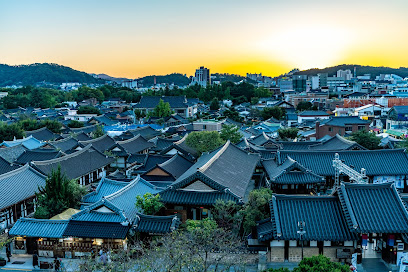
Nambu Market
Discover the vibrant atmosphere of Nambu Market in Jeonju, where local culture and delicious street food come together for an unforgettable experience.
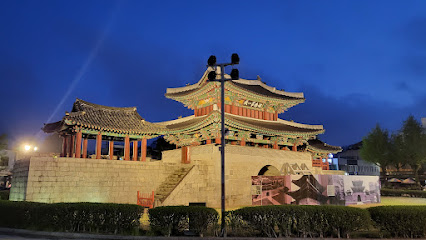
Jeonju Zoo
Discover Jeonju Zoo, a captivating family-friendly destination showcasing diverse wildlife and stunning landscapes in Jeonju, South Korea.
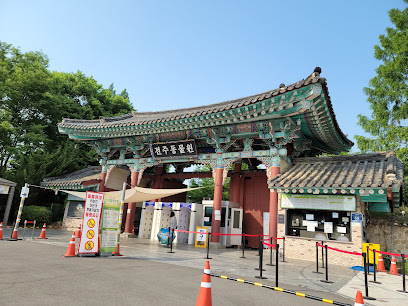
Deokjin Park
Experience the tranquility of Deokjin Park in Jeonju, a serene escape with beautiful landscapes and vibrant floral displays.
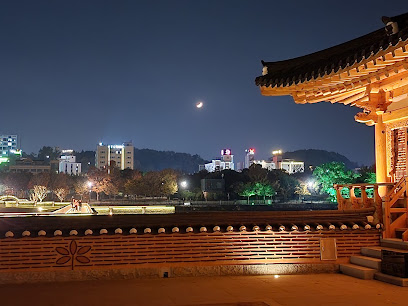
Jeondong Cathedral
Discover the breathtaking architecture and rich history of Jeondong Cathedral, a must-visit landmark in Jeonju, South Korea.
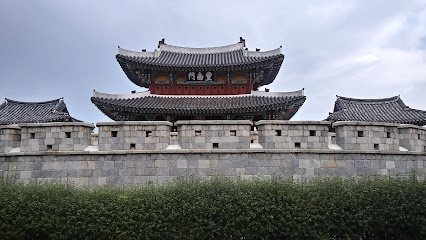
Korea Expressway Corporation Arboretum (Jeonju Arboretum )
Explore the serene beauty of Korea Expressway Corporation Arboretum in Jeonju, a peaceful retreat showcasing diverse flora and picturesque walking trails.
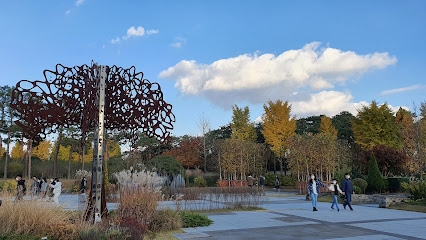
Jeonju Hyanggyo
Explore the historical charm of Jeonju Hyanggyo, a serene Confucian school surrounded by nature, perfect for cultural immersion and relaxation.
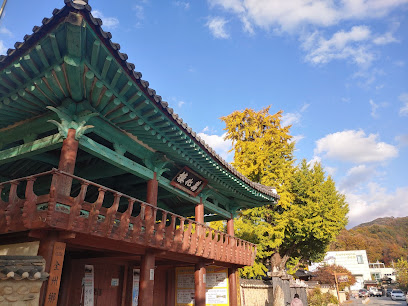
Gyeonggijeon Shrine
Explore Gyeonggijeon Shrine in Jeonju: A historical landmark rich in culture and beauty, offering a serene escape into Korea's Joseon Dynasty legacy.
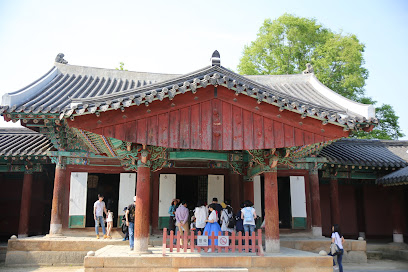
Jeonju Dreamland
Discover the excitement of Jeonju Dreamland, an amusement park filled with thrilling rides and family-friendly attractions in the heart of Jeonju, South Korea.
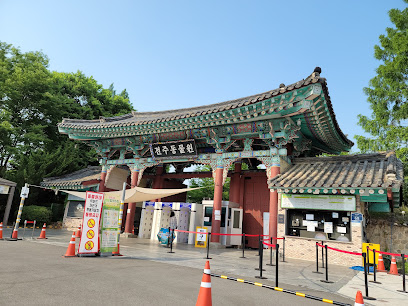
Jaman Mural Village
Explore Jaman Mural Village, a vibrant and artistic hub in Jeonju-si, South Korea, where every mural tells a story of culture and creativity.
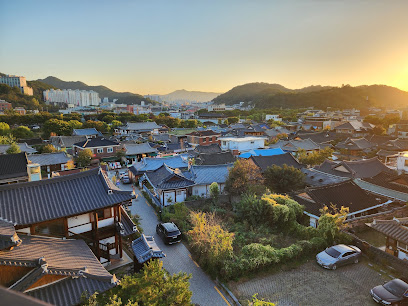
Pungnammun Gate
Discover the architectural beauty and historical significance of Pungnammun Gate, a must-see landmark in Jeonju, South Korea, showcasing Korean heritage.
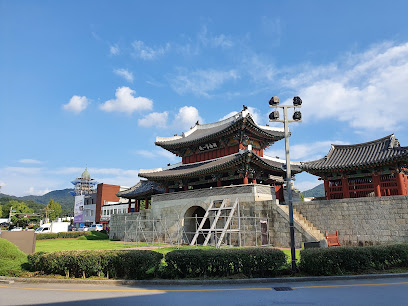
Jeonju National Museum
Explore the treasures of Korean history and culture at Jeonju National Museum, a must-visit for all tourists in Jeonju, South Korea.
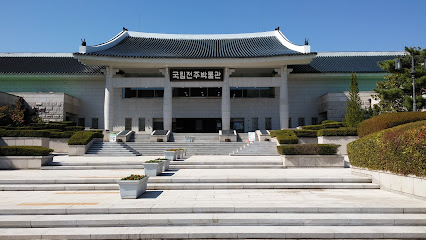
Royal Portrait Museum
Explore the Royal Portrait Museum in Jeonju, where Korea's regal history comes alive through stunning portraits and rich cultural exhibits.
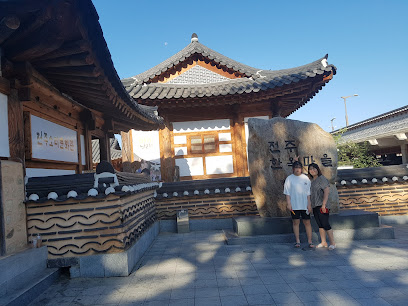
Cheongyeollu
Discover the serene beauty of Cheongyeollu in Jeonju, where nature meets culture in a tranquil setting perfect for relaxation and exploration.
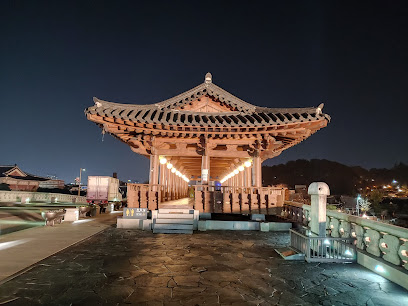
Jeonmang | Cafe & Guesthouse
Experience the perfect blend of comfort and flavor at Jeonmang Cafe & Guesthouse in Jeonju, where every sip and stay tells a story.
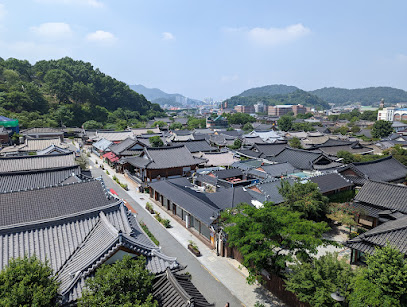
Unmissable attractions to see
Jeonju Hanok Village
Discover the beauty of traditional Korea at Jeonju Hanok Village, where history, culture, and delicious cuisine await every traveler.
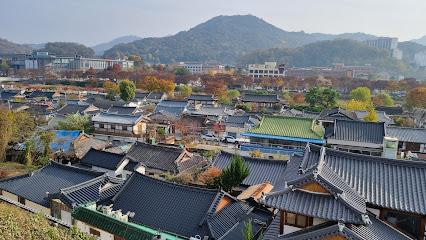
Nambu Market
Discover the flavors and culture of Jeonju at Nambu Market, a bustling hub of local delicacies and traditional crafts.
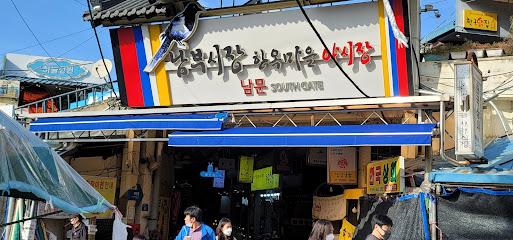
Jangtaesan Recreational Forest
Explore the lush trails and serene beauty of Jangtaesan Recreational Forest, a top tourist attraction in Daejeon, South Korea.
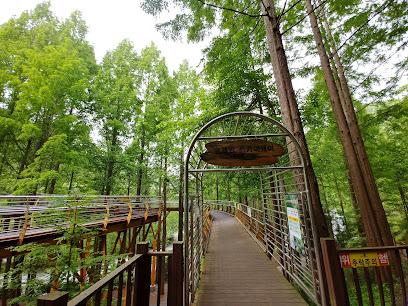
Jeonju Zoo
Discover the diverse wildlife and beautiful landscapes at Jeonju Zoo, a top tourist attraction in Jeonbuk State, South Korea.
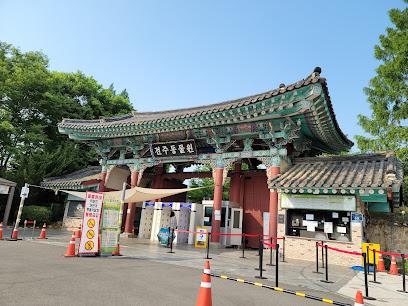
Jeonju Zoo
Explore Jeonju Zoo: A family-friendly destination showcasing diverse wildlife and engaging exhibits in the heart of Jeonju.
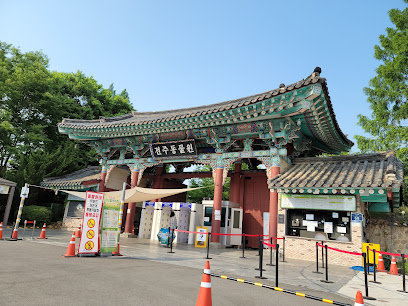
Jeondong Cathedral
Experience the breathtaking beauty and rich history of Jeondong Cathedral in Jeonju, a must-visit Gothic architectural marvel surrounded by culture.
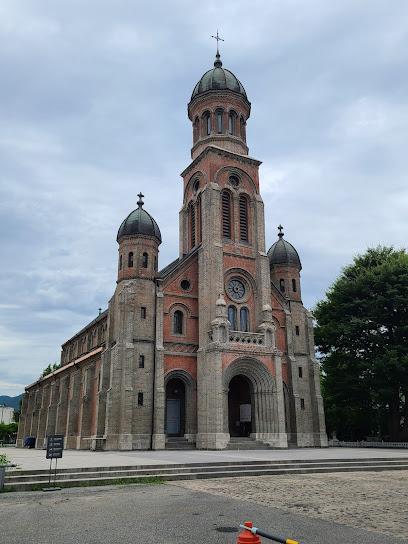
Deokjin Park
Explore the beauty and tranquility of Deokjin Park in Jeonju, where nature meets culture in a stunning botanical paradise.
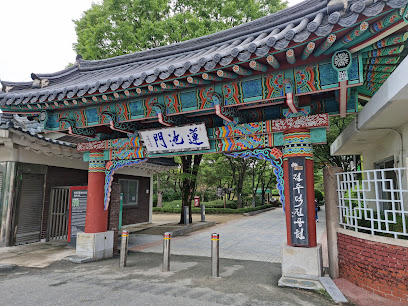
Naejangsan National Park
Explore the breathtaking beauty of Naejangsan National Park, a top destination in Jeonbuk, South Korea, famous for its stunning autumn foliage and rich biodiversity.
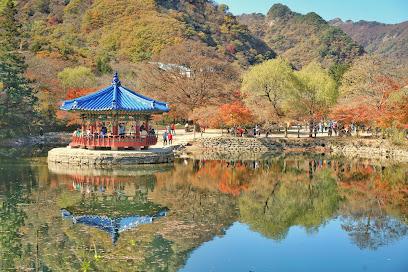
Jeonju Hyanggyo
Explore Jeonju Hyanggyo, a historical landmark showcasing Korea's Confucian heritage amidst picturesque natural beauty.
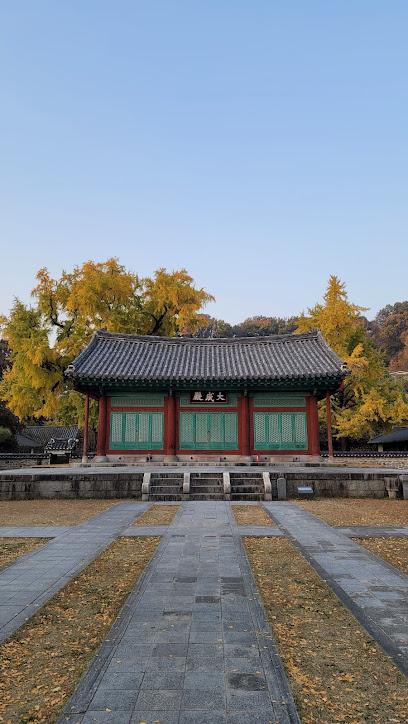
Jeonju Hyanggyo
Explore Jeonju Hyanggyo, a historical landmark that showcases Korea's rich Confucian heritage amidst serene landscapes and stunning architecture.
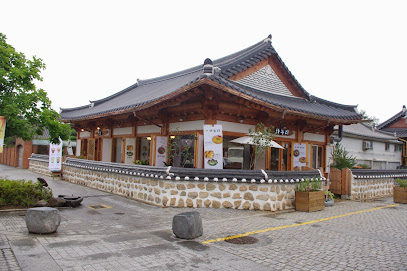
Gyeonggijeon Shrine
Discover the beauty and history of Gyeonggijeon Shrine, a key historical landmark in Jeonju, Korea, showcasing royal heritage and traditional architecture.
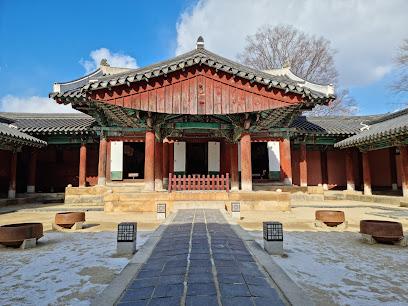
Jeonju Dreamland
Experience the thrill of adventure and family fun at Jeonju Dreamland, a premier amusement park in Jeonju-si, South Korea, where excitement awaits.
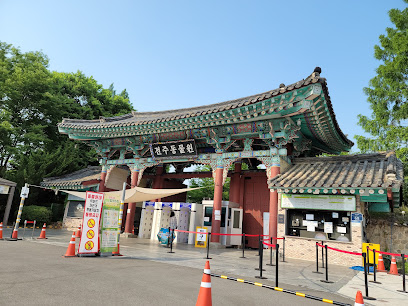
Jaman Mural Village
Discover the artistry of Jaman Mural Village in Jeonju-si – a colorful blend of creativity, culture, and local charm awaits your exploration.
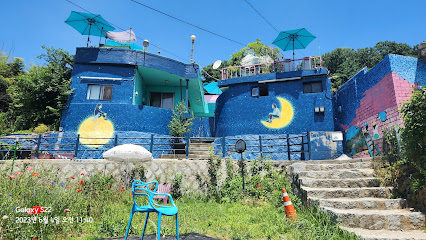
Jeonju National Museum
Explore the Jeonju National Museum: A gateway to Korea's rich history and culture, offering a diverse collection of artifacts and art in a stunning setting.
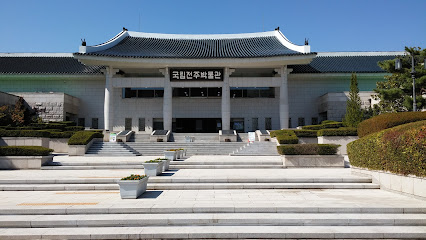
Royal Portrait Museum
Explore the Royal Portrait Museum in Jeonju to witness Korea's regal past through stunning royal portraits and rich historical narratives.
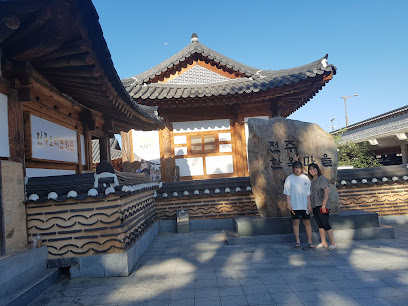
Essential places to dine
Veteran Kalguksu
Discover the authentic taste of Korea at Veteran Kalguksu – home of delicious handmade noodles in Jeonju.
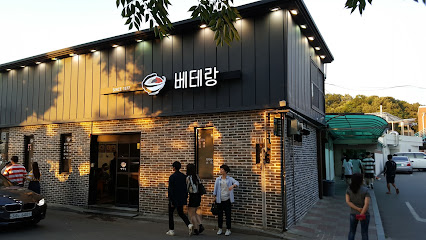
현대옥 전주본점
Experience authentic Korean breakfast at 현대옥 전주본점 in Jeonju – where tradition meets flavor in every dish.
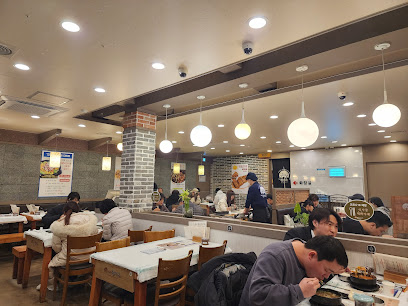
조점례남문피순대
Experience authentic Korean cuisine at 조점례남문피순대 in Jeonju – home to delicious pig intestine delicacies served in a warm atmosphere.
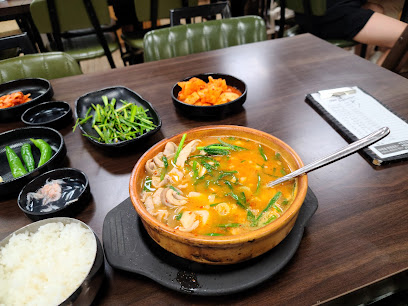
Gogung
Discover authentic Korean cuisine at Gogung in Jeonju – where tradition meets flavor in every dish.
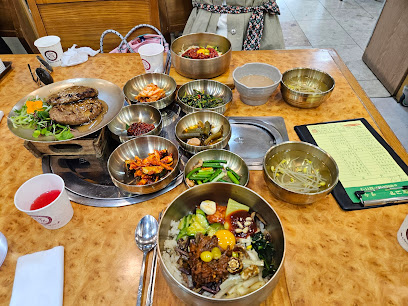
삼백집 본점
Experience authentic Korean flavors at 삼백집 본점 in Jeonju - a culinary gem renowned for its traditional bibimbap and warm hospitality.
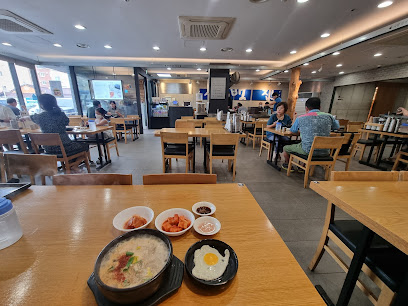
Hangugjib
Savor authentic Korean flavors at Hangugjib in Jeonju – where tradition meets taste in every dish.
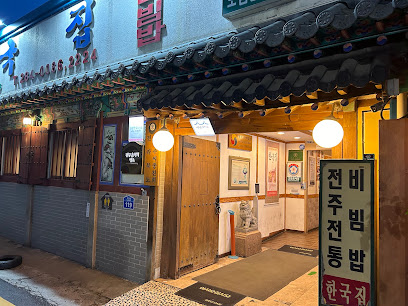
구프오프(goof-off)
Experience the ultimate brunch delight at Goof-Off in Jeonju – where fresh ingredients meet creative culinary artistry.
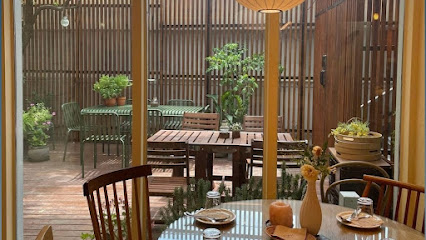
Family House(Jeonju Bibimbap)
Experience the authentic flavors of Korea at Family House in Jeonju—home to the famous Jeonju Bibimbap.
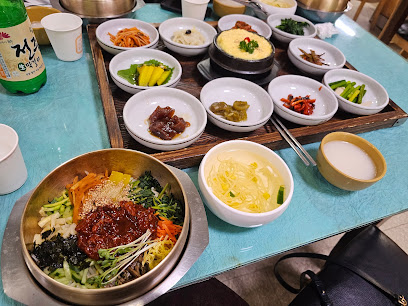
Jeonju Hyundaiok
Experience authentic Korean flavors at Jeonju Hyundaiok – where tradition meets taste in every dish.
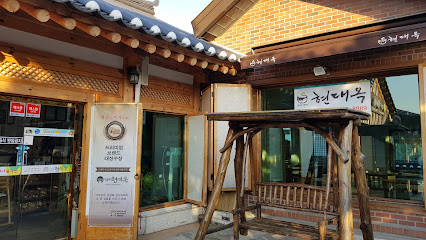
Jeonju Waengi Kongnamul-gukbap
Experience authentic Korean cuisine at Jeonju Waengi Kongnamul-gukbap - home of delicious kongnamul soup and local flavors.
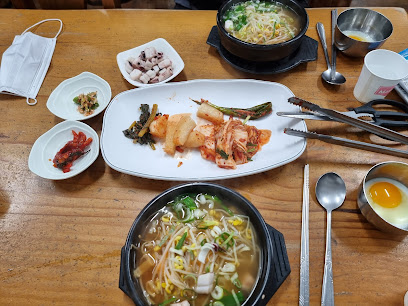
Honamgak
Experience authentic Korean cuisine at Honamgak in Jeonju-si - where tradition meets flavor in every dish.
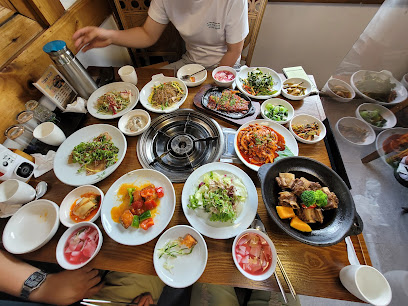
Mereumil Jinmijip
Experience authentic Korean noodle dishes at Mereumil Jinmijip in Jeonju - where tradition meets flavor in every bowl.
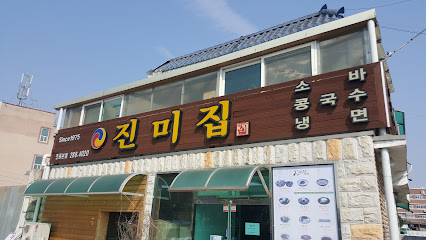
Taepyeongjib
Experience authentic Korean flavors at Taepyeongjib, a renowned soba noodle shop in Jeonju-si offering fresh and delicious dishes.
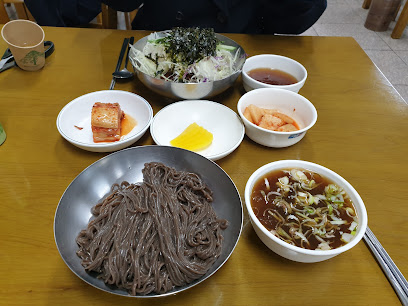
Banya Dolsotbap
Discover the taste of authentic Korean dolsotbap at Banya Dolsotbap in Jeonju - where tradition meets flavor!
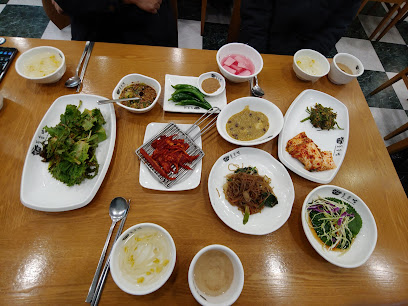
45-year-old traditional bibimbap Jongno Hall
Experience authentic Jeonju bibimbap at the historic 45-year-old Traditional Bibimbap Jongno Hall - where tradition meets flavor.
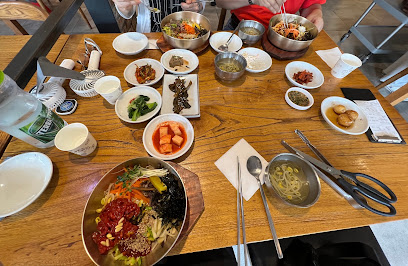
Markets, malls and hidden boutiques
Jeonju Hanok Village
Experience the rich cultural heritage of Korea at Jeonju Hanok Village, where traditional architecture meets vibrant local cuisine and immersive cultural experiences.
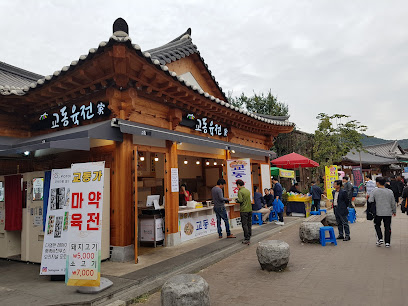
Nambu Market
Discover the vibrant Nambu Market in Jeonju, a must-visit destination for local cuisine, unique crafts, and cultural experiences.
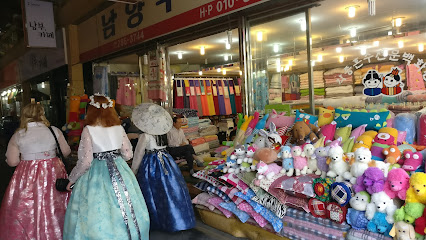
LOTTE Department Store Jeonju
Explore LOTTE Department Store Jeonju for a unique blend of shopping, dining, and entertainment in the heart of Jeonju.
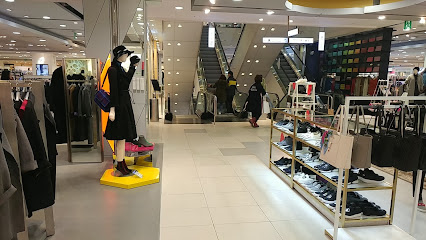
NC웨이브 전주객사점
Discover NC웨이브 전주객사점: Jeonju's premier shopping destination blending fashion, food, and culture in an unforgettable experience!
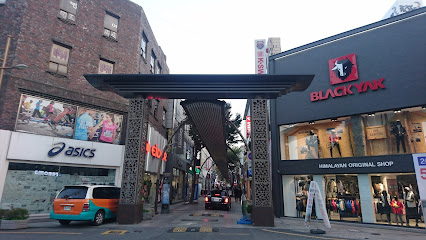
Youth Market
Discover the vibrant Youth Market in Jeonju, where local culture, delicious street food, and unique shopping come together in a lively atmosphere.
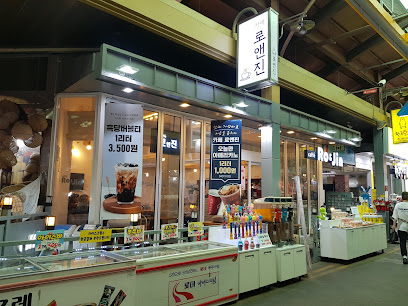
Kyobo Bookshop
Explore Kyobo Bookshop in Jeonju: A treasure trove of books and a serene retreat for every book lover.
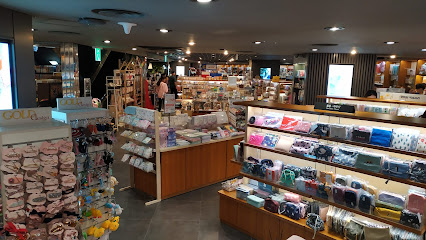
Kakao Friends
Explore Kakao Friends in Jeonju, a vibrant stationery store that offers a delightful range of unique merchandise featuring beloved characters.
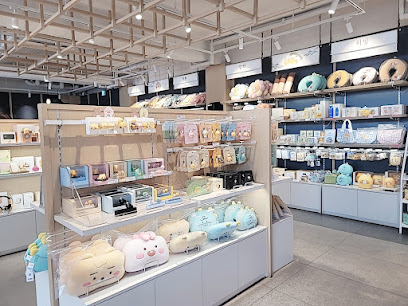
Jeonju hanok village hanbok rental HANBOKNAM
Discover the rich heritage of Korea at Jeonju's HANBOKNAM, where tradition meets elegance in every hanbok rental experience.
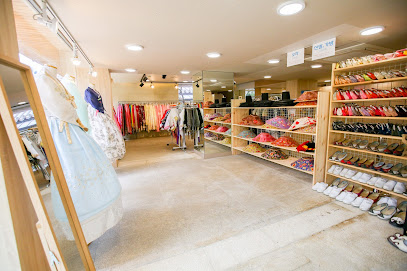
Artbox Jeonju Gaeksa
Discover the charm of Artbox Jeonju Gaeksa, where unique home goods meet contemporary Korean design in a vibrant shopping atmosphere.
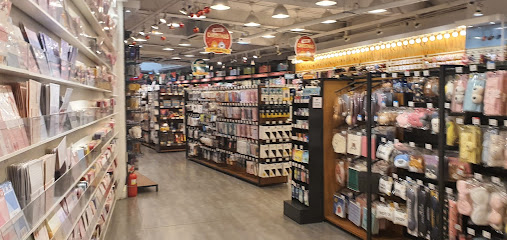
호남문고
Explore the cozy Honam Bookstore in Jeonju, a literary haven for book lovers featuring a diverse collection of titles and engaging cultural events.
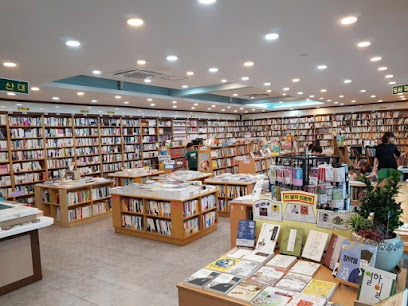
노벨리나 전주점
Discover the lively 노벨리나 전주점 shopping mall in Jeonju, offering a unique blend of shopping, dining, and cultural experiences.
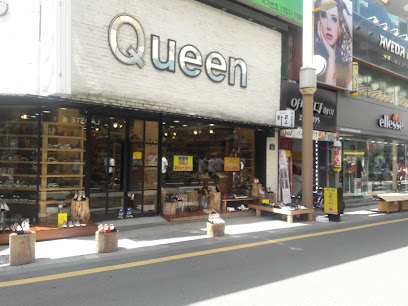
핫트랙스 전주점
Discover a cultural shopping haven at Hottracks Jeonju, where local artistry meets modern retail in a vibrant atmosphere.
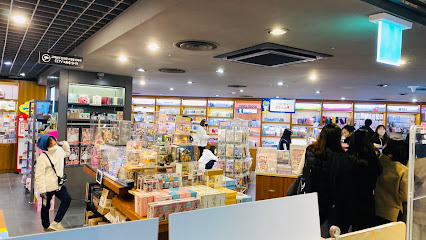
Jeonju Crafts Exhibition Hall
Explore the vibrant world of Korean handicrafts at Jeonju Crafts Exhibition Hall, where art and tradition come together in a unique cultural experience.
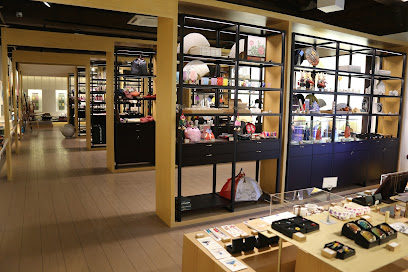
Beautiful Store
Explore Beautiful Store in Jeonju-si for a unique thrift shopping experience with vintage finds and local treasures that reflect Korean culture.
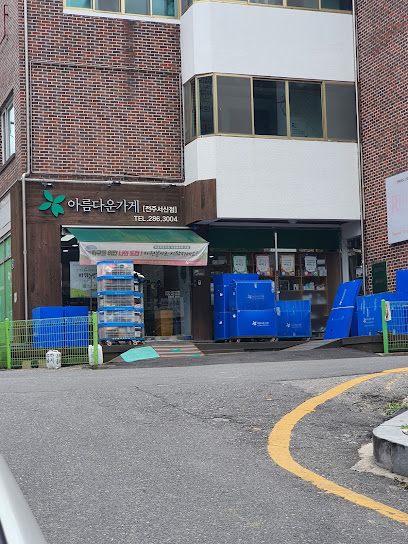
Jeonju Traditional Korean Support
Discover the essence of Korean heritage at Jeonju Traditional Korean Support, where art and culture meet through exquisite handmade paper.
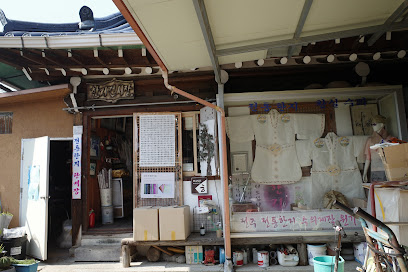
Essential bars & hidden hideouts
Nomadic Beer Garden 노매딕 비어가든
Discover the Nomadic Beer Garden, where craft beer meets a lively outdoor atmosphere in the heart of Jeonju-si.
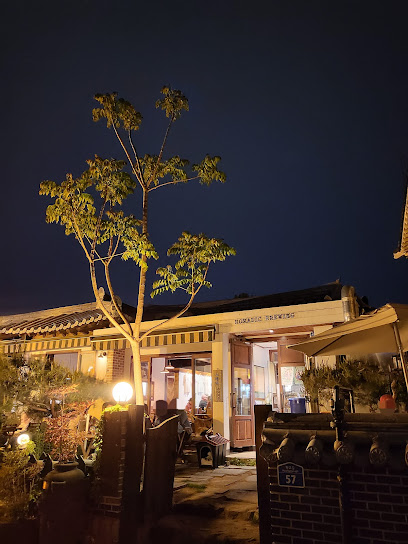
Pub Grizzly
Discover Jeonju's nightlife at Pub Grizzly, where vibrant ambiance meets a unique selection of drinks and local flavors.
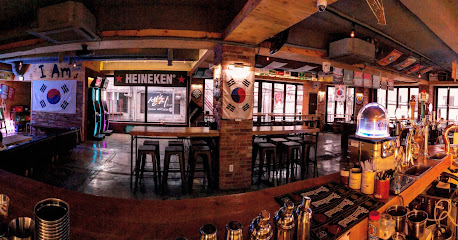
S&S jeonju
Experience the vibrant nightlife of Jeonju at S&S Jeonju, where great drinks and an inviting atmosphere await.
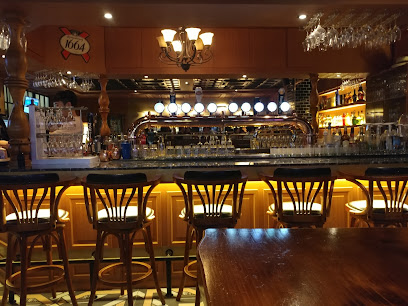
Bar Cold Dawn
Discover the enchanting Bar Cold Dawn in Jeonju, offering unique cocktails and a cozy atmosphere perfect for relaxation and socializing.
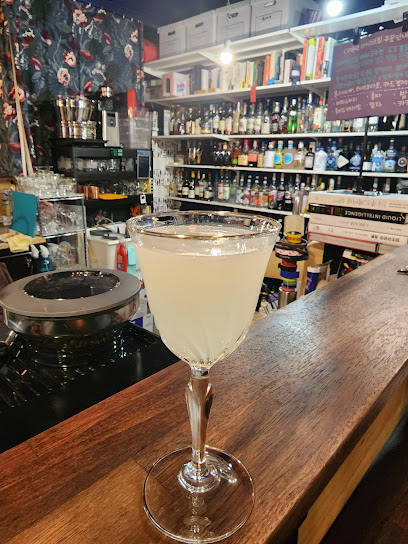
Jinju Doga
Discover the vibrant nightlife at Jinju Doga, a lively bar in Jeonju offering an extensive drink menu and a warm, welcoming atmosphere.
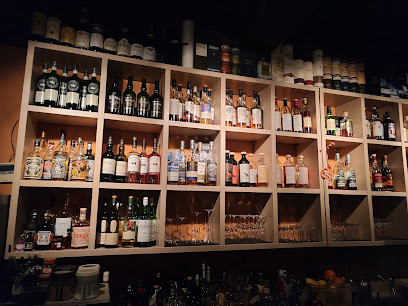
Deepin
Discover the vibrant nightlife of Jeonju at Deepin, your go-to pub for local beers, signature cocktails, and a lively atmosphere.
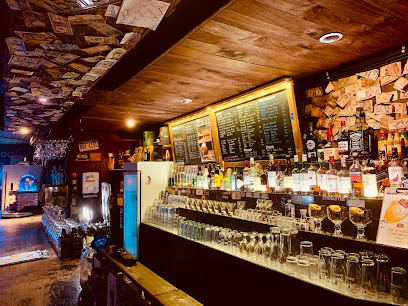
바엉클죠
Discover the unique blend of Korean flavors and modern mixology at Jeonju's vibrant 바엉클죠 cocktail bar, perfect for night owls and cocktail enthusiasts.
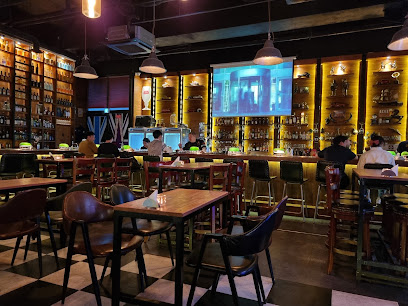
Jazz Pub Roy
Discover the vibrant rhythms of Jazz Pub Roy, a must-visit jazz club in Jeonju-si, where live music and a cozy ambiance create unforgettable nights.
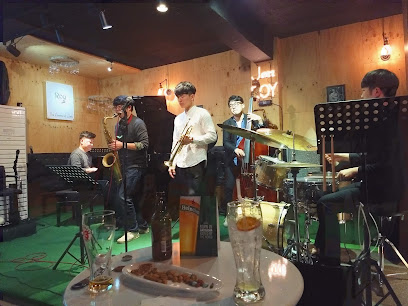
무드 카페 & 펍 Mood Cafe & Pub
Discover the vibrant flavors of Jeonju at Mood Cafe & Pub, where expertly crafted cocktails meet a cozy and inviting atmosphere.
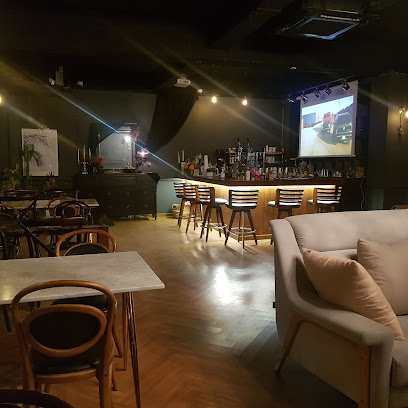
블랙라운지
Discover the elegance of 블랙라운지, a premier wine bar in Jeonju-si, offering exquisite wines and a chic ambiance for a memorable evening.
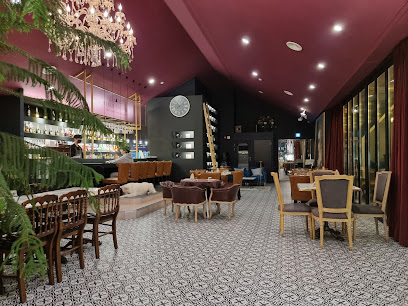
로드무비
Discover Jeonju's nightlife at 로드무비, a cocktail bar blending innovative drinks with a vibrant atmosphere for a memorable experience.
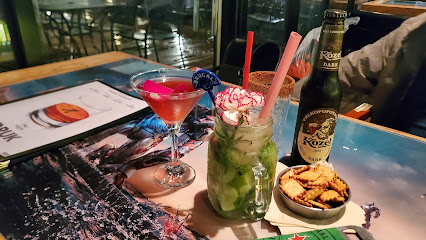
Pub New Malden
Discover the charm of an Irish pub in Jeonju at Pub New Malden, where great drinks and friendly vibes await every visitor.
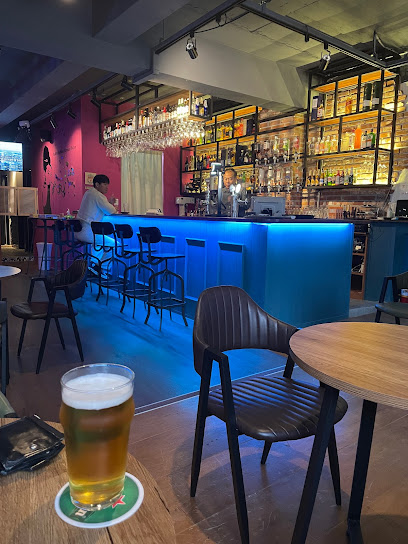
Afternoon & Wine
Experience the charm of Jeonju's wine culture at Afternoon & Wine, where exquisite flavors and cozy ambiance await every visitor.
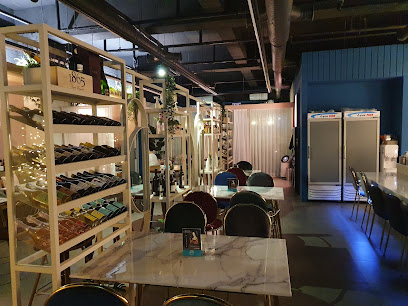
뷰제
Discover the vibrant nightlife at 뷰제, a cozy bar in Jeonju offering a delightful mix of local flavors and international drinks.
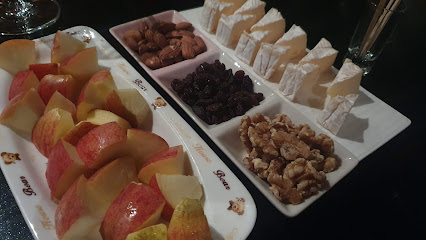
Local Phrases
-
- Hello안녕하세요
[annyeonghaseyo] - Goodbye안녕히 가세요
[annyeonghi gaseyo] - Yes네
[ne] - No아니요
[aniyo] - Please/You're welcome부탁합니다/천만에요
[butakhamnida/cheonmaneyo] - Thank you감사합니다
[gamsahamnida] - Excuse me/Sorry죄송합니다/미안합니다
[joesonghamnida/mianhamnida] - How are you?어떻게 지내세요?
[eotteoke jinaeseyo?] - Fine. And you?잘 지내고 있어요. 당신은요?
[jal jinaego isseoyo. dangsineunyo?] - Do you speak English?영어를 할 수 있습니까?
[yeongeoreul hal su issseumnikka?] - I don't understand이해하지 못해요
[ihaehaji mothaeyo]
- Hello안녕하세요
-
- I'd like to see the menu, please메뉴를 보고 싶어요
[menyureul bogo sipeoyo] - I don't eat meat고기를 먹지 않아요
[gogireul meokji anayo] - Cheers!건배!
[geonbae!] - I would like to pay, please계산할게요
[gyesanhalkkeyo]
- I'd like to see the menu, please메뉴를 보고 싶어요
-
- Help!도와주세요!
[dowajuseyo!] - Go away!가세요!
[gaseyo!] - Call the Police!경찰을 불러주세요!
[gyeongchareul bulleojuseyo!] - Call a doctor!의사를 불러주세요!
[uisareul bulleojuseyo!] - I'm lost길을 잃었어요
[gireul ilheosseoyo] - I'm ill아픈 것 같아요
[apeun geot gatayo]
- Help!도와주세요!
-
- I'd like to buy...이걸 사고 싶어요
[igeol sago sipeoyo] - I'm just looking그냥 둘러보고 있어요
[geunyang dulleobogo isseoyo] - How much is it?얼마에요?
[eolmaeyo?] - That's too expensive너무 비싸요
[neomu bissayo] - Can you lower the price?가격을 내릴 수 있나요?
[gageogeul naeril su innayo?]
- I'd like to buy...이걸 사고 싶어요
-
- What time is it?지금 몇 시에요?
[jigeum myeot sieyo?] - It's one o'clock한 시에요
[han sieyo] - Half past (10)열 시 반
[yeol si ban] - Morning아침
[achim] - Afternoon오후
[ohu] - Evening저녁
[jeonyeok] - Yesterday어제
[eoje] - Today오늘
[oneul] - Tomorrow내일
[naeil] - 1하나
[hana] - 2둘
[dul] - 3셋
[set] - 4넷
[net] - 5다섯
[daseot] - 6여섯
[yeoseot] - 7일곱
[ilgop] - 8여덟
[yeodeol] - 9아홉
[ahop] - 10열
[yeol]
- What time is it?지금 몇 시에요?
-
- Where's a/the...?...이 어디 있어요?
[...i eodi isseoyo?] - What's the address?주소가 뭐에요?
[jusoga mwoeyo?] - Can you show me (on the map)?지도로 보여주실 수 있나요?
[jidoro boyeojusil su innayo?] - When's the next (bus)?다음 버스는 언제와요?
[daeum beoseuneun eonjewayo?] - A ticket (to ....)표 한 장 (....로)
[pyo han jang (....ro)]
- Where's a/the...?...이 어디 있어요?
History of Jeonju
-
Jeonju, the capital city of North Jeolla Province, has a rich history that dates back to the Three Kingdoms period of Korea. It was established as a city during the Baekje Kingdom (18 BCE – 660 CE). Jeonju served as an important hub for culture and politics during the Unified Silla period (668–935) and later during the Goryeo Dynasty (918–1392). Its strategic location made it a central point for trade and cultural exchange.
-
Jeonju is famously known as the birthplace of the Joseon Dynasty (1392–1897), one of Korea's most significant historical periods. Yi Seong-gye, who later became King Taejo, the founder of the Joseon Dynasty, hailed from Jeonju. The city holds a special place in Korean history as it laid the foundation for the dynasty that ruled Korea for over 500 years. The royal family’s ancestral shrine, Gyeonggijeon, was built in 1410 and houses the portrait of King Taejo.
-
Throughout the Joseon Dynasty, Jeonju remained a vital cultural center. The city was renowned for its traditional Korean architecture, arts, and crafts. The Jeonju Hanok Village, which features over 800 traditional Korean hanok houses, preserves this rich cultural heritage. Visitors can explore the Hanok Village to experience traditional tea houses, artisan workshops, and historic sites that reflect the city's illustrious past.
-
During the Japanese occupation of Korea (1910–1945), Jeonju, like many other Korean cities, underwent significant changes. The period saw the introduction of modern infrastructure and urban planning. However, it also marked a time of cultural suppression and hardship for the Korean people. Post-liberation, Jeonju rapidly modernized and continued to grow, balancing its rich historical legacy with the demands of a modern city.
-
In the late 20th and early 21st centuries, Jeonju has become known for its vibrant cultural scene, particularly through the Jeonju International Film Festival (JIFF), which began in 2000. The annual event attracts filmmakers, actors, and cinema enthusiasts from around the world, further cementing Jeonju's reputation as a cultural and artistic hub. The festival showcases independent films and serves as a platform for new and innovative cinematic works.
-
Jeonju is celebrated for its culinary delights, particularly its bibimbap, a mixed rice dish that has become synonymous with Korean cuisine. The city's dedication to preserving its traditional culinary practices was recognized in 2012 when Jeonju was designated as a UNESCO City of Gastronomy. This recognition highlights Jeonju's commitment to maintaining its rich food heritage while promoting sustainable urban food policies.
-
Jeonju is not only a city of tangible historical sites but also a guardian of intangible cultural heritage. The city is home to various traditional Korean music forms, particularly Pansori, a genre of musical storytelling. UNESCO has recognized Pansori as an intangible cultural heritage of humanity. Visitors to Jeonju can experience live Pansori performances, offering a glimpse into Korea's rich musical traditions.
Jeonju Essentials
-
Jeonju is located in the North Jeolla Province of South Korea. The nearest international airport is Incheon International Airport (ICN) in Seoul, approximately 200 kilometers away. From Incheon, you can take an express bus directly to Jeonju, which takes about 3 hours. Alternatively, you can take a KTX (Korea Train Express) from Seoul Station to Jeonju, which takes around 1.5 to 2 hours. There are also domestic flights to Gunsan Airport, which is about an hour's drive from Jeonju.
-
Jeonju has a well-connected public transportation system, including buses and taxis. The Jeonju Hanok Village and other major attractions are within walking distance of each other. Local buses are an affordable way to get around the city, and taxis are readily available and reasonably priced. For a unique experience, consider renting a bicycle or taking a guided rickshaw tour through the Hanok Village.
-
The official currency in South Korea is the South Korean Won (KRW). Credit cards are widely accepted in Jeonju, including in most hotels, restaurants, and shops. However, it is advisable to carry some cash for smaller establishments and street vendors. ATMs are readily available throughout the city, including in convenience stores and major shopping areas.
-
Jeonju is generally a safe city for tourists. Violent crime is rare, but petty theft can occur, especially in crowded areas. Avoid leaving your belongings unattended and be cautious in busy markets and tourist spots. While there are no specific high-crime areas targeting tourists, it is always best to stay vigilant and aware of your surroundings.
-
In case of emergency, dial 119 for immediate assistance. The local police station and medical facilities are available in Jeonju. It is recommended to have travel insurance that covers medical emergencies. For minor health issues, there are numerous pharmacies in the city where you can purchase over-the-counter medications. English-speaking staff may be available at larger hospitals.
-
Fashion: Do dress modestly, especially when visiting religious sites. Avoid overly revealing clothing. Religion: Do respect local customs and traditions. Always remove your shoes when entering temples and some traditional buildings. Public Transport: Do be respectful and give up your seat to elderly passengers. Don't speak loudly on public transport. Greetings: Do greet people with a slight bow. A handshake is also common among younger people. Eating & Drinking: Do try local delicacies and accept food offerings graciously. Don’t leave chopsticks standing upright in a bowl of rice, as it resembles a funeral ritual.
-
To experience Jeonju like a local, visit the Jeonju Nambu Market, especially during the night market hours, where you can try a variety of street foods. Engage with locals, as they are often friendly and eager to share insights about their culture. Don’t miss the opportunity to wear a hanbok (traditional Korean clothing) and walk around the Hanok Village for a more immersive experience. For a unique cultural activity, try making your own bibimbap, a signature dish of Jeonju, at one of the local cooking classes.
Trending Landmark in Jeonju
-
Jeonju Hanok Village
-
Nambu Market
-
Jeonju Zoo
-
Deokjin Park
-
Jeondong Cathedral
-
Korea Expressway Corporation Arboretum (Jeonju Arboretum )
-
Jeonju Hyanggyo
-
Gyeonggijeon Shrine
-
Jeonju Dreamland
-
Jaman Mural Village
-
Pungnammun Gate
-
Jeonju National Museum
-
Royal Portrait Museum
-
Cheongyeollu
-
Jeonmang | Cafe & Guesthouse
Nearby Cities to Jeonju
-
Things To Do in Daejeon
-
Things To Do in Gwangju
-
Things To Do in Suncheon
-
Things To Do in Daegu
-
Things To Do in Mokpo
-
Things To Do in Suwon
-
Things To Do in Andong
-
Things To Do in Incheon
-
Things To Do in Busan
-
Things To Do in Gyeongju
-
Things To Do in Seoul
-
Things To Do in Ulsan
-
Things To Do in Pohang
-
Things To Do in Chuncheon
-
Things To Do in Jeju City














